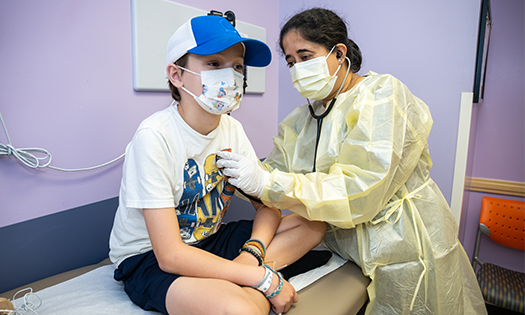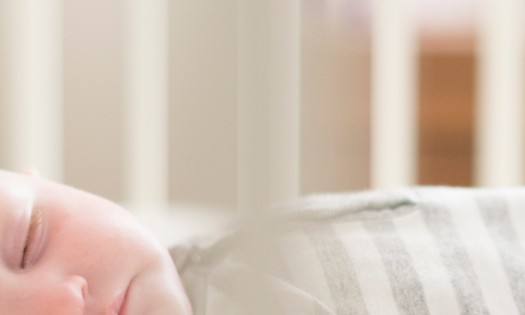When parents express concern about their child’s snoring, pediatricians and otolaryngologists are faced with a challenging question: Should I order a sleep study (polysomnography)?
Around 12 percent of children have some form of sleep-disordered breathing (SDB), an umbrella term that ranges from snoring to serious conditions, like obstructive sleep apnea (OSA). SDB bleeds into children’s daily lives, impacting their ability to focus at home and in the classroom. Left untreated, children with SDB face an increased risk of poor school performance, behavioral issues and possibly cardiovascular consequences.
Yet, it’s not feasible to perform a sleep study on every child who comes in with a sleep-related complaint. So which patients would most benefit? S. Kamal Naqvi, M.D., Medical Director of the Sleep Disorders Center at Children’s Health℠ in Dallas and Associate Professor at UT Southwestern, hears this question often.
This is what he tells referring physicians:
When OSA is Suspected
If the child’s history and exam are suggestive of snoring, witnessed apneic pauses and disturbed sleep with adenotonsillar hypertrophy, a sleep study should be done to confirm or rule out OSA. “This is particularly true for children with daytime attention and learning issues,” Dr. Naqvi says.
When Children Have Obesity
Children with obesity are at a much higher risk of developing OSA. That’s something pediatricians need to watch for.
“Obesity is rising at alarming rates. Some 10 to 15 years ago, we started seeing children and teens with obesity-related sleep apnea, which was previously only seen in adults,” Dr. Naqvi says.
Anytime a child is being evaluated for their weight, physicians should also ask about their sleep. “If there’s any snoring, apneic pauses, disturbed sleep or excessive daytime sleepiness, a sleep study should be done,” he says.
When There’s Doubt That an Adenotonsillectomy is Needed
Sometimes children have large tonsils or adenoids but unclear history of snoring, or they may snore but don’t have overly large tonsils. The presence of large tonsils or snoring alone does not always mean OSA.
“About 10 to 20 percent of the time children’s sleep studies show no signs of OSA,” Dr. Naqvi says. “If there’s any doubt, a study should be ordered to avoid unnecessary surgery.”
When There’s a Risk of Complication During Surgery
Dr. Naqvi recommends ordering a sleep study prior to adenotonsillectomy if children are at high risk for complications during or after surgery.
The latest AAO-HNS guidelines – which were endorsed by both AASM (American Academy of Sleep Medicine and AAP (American Academy of Pediatrics) – recommends physicians order a sleep study if the patient is under two years of age, or if they exhibit any of the following: obesity, Down syndrome, craniofacial abnormalities, neuromuscular disorders, sickle cell disease or mucopolysaccharidoses.
“These patients require more careful evaluation – not only when diagnosing, but also preparing for post-operative care,” Dr. Naqvi says. “Sleep studies can inform decisions, including whether they can head home the same day or need to be admitted for monitoring.”
Sleep Studies Aren’t Always the Answer
“There’s a common misunderstanding that a sleep study is the answer for all sleep-related questions,” Dr. Naqvi says. “That’s not always the case.”
If children have trouble falling and staying asleep, or parasomnia, a sleep study may not always offer answers. They may be referred to a sleep specialist who can evaluate the cause and offer treatment options.
A Comprehensive Approach to Sleep
Children’s Health offers the largest dedicated pediatric sleep center in North Texas accredited by the American Academy of Sleep Medicine. The center performs more than 4,000 studies a year and offers a full spectrum of testing and evaluations.
Our multidisciplinary team of eight providers includes physicians, nurse practitioners and a clinical psychologist who specialize in sleep disorders. This enables us to address children’s medical and psychological needs in a timely fashion.
“Sleep is an important part of life, yet our society in general is sleep deprived,” Dr. Naqvi says. “Inadequate sleep affects children’s well-being, school performance and behavior during the day. It’s important that we diagnose, treat and educate to help improve the sleep they need.”
Learn more about the Sleep Center.


